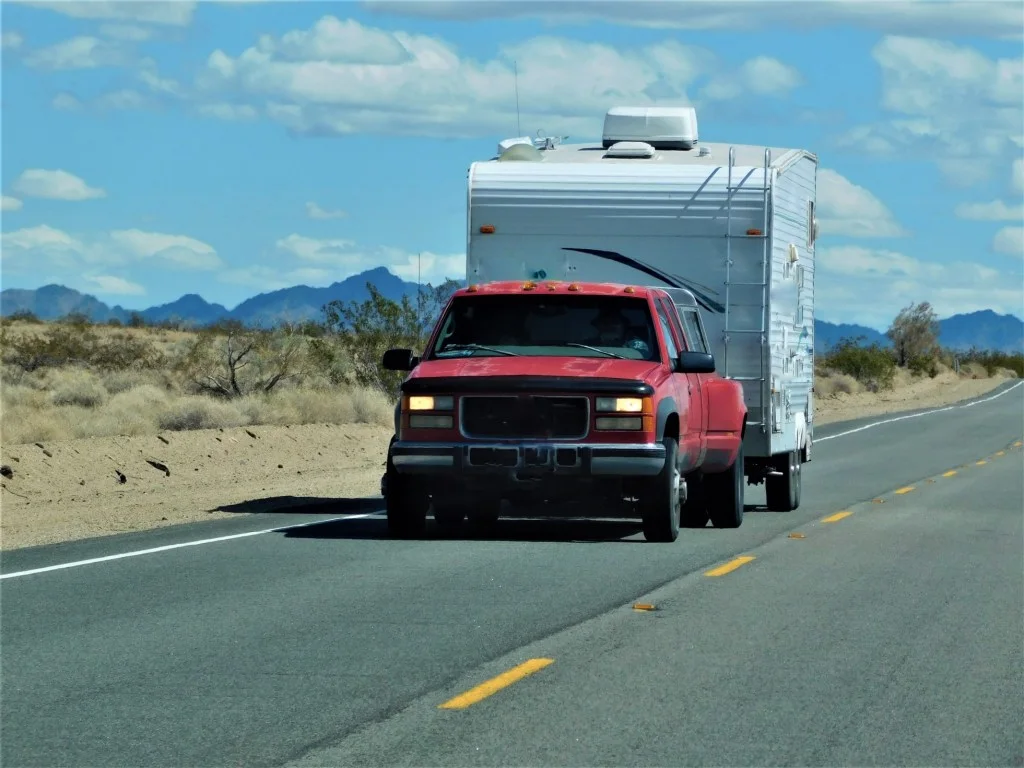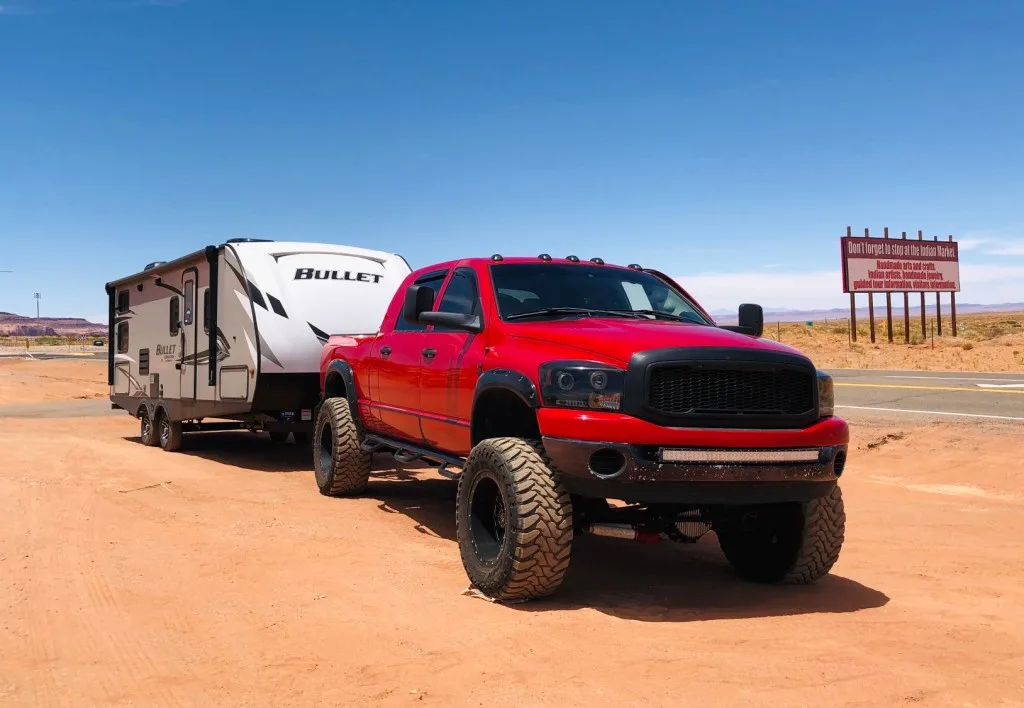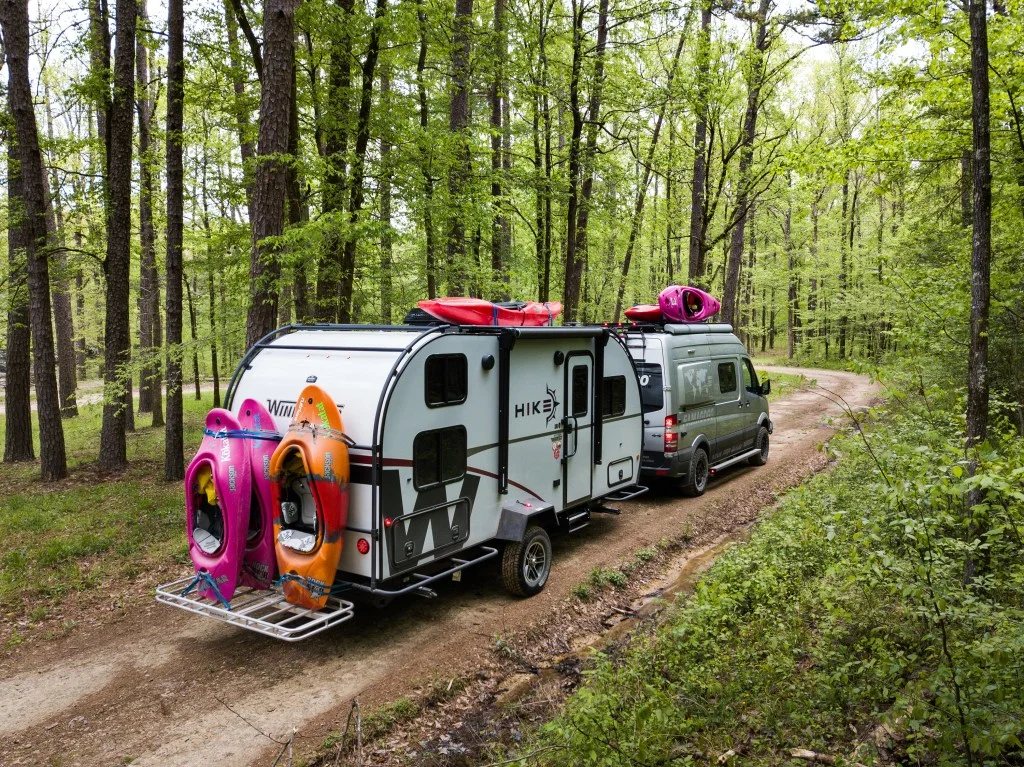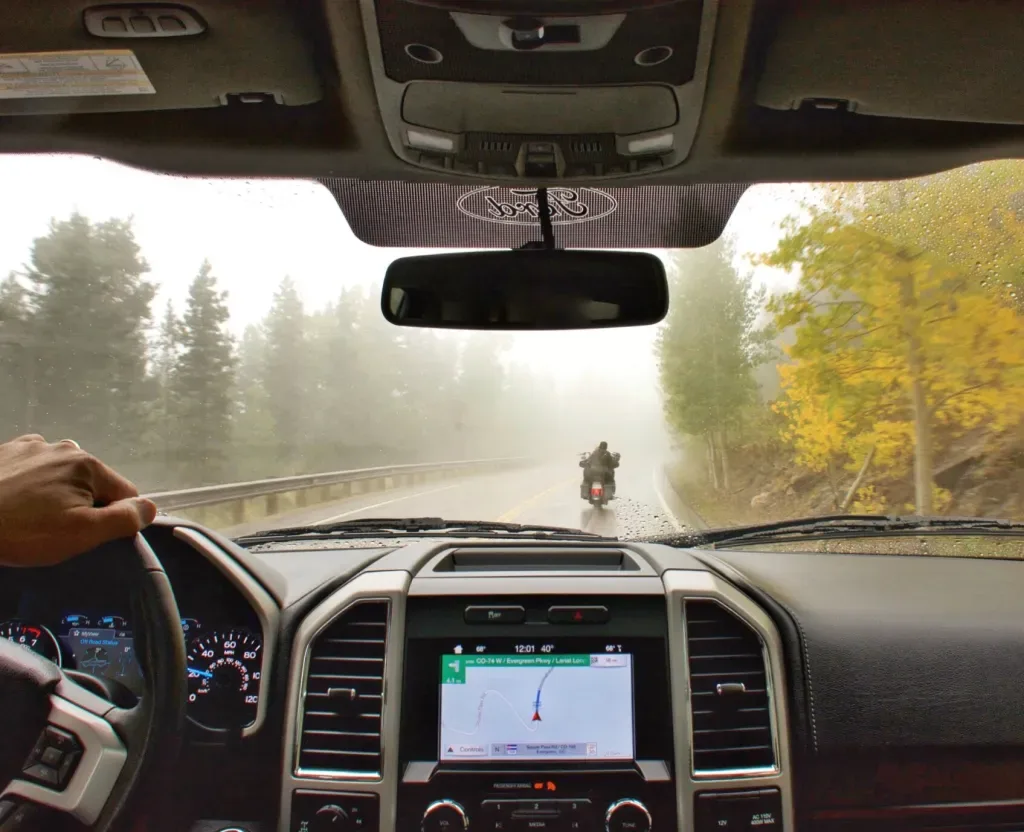Should You Pass Other Vehicles When Towing?
Getting stuck behind a slow-moving vehicle can be frustrating. It may be tempting to try to go around a slow driver.
However, is it safe?
Today we’ll take a closer look at if you should pass other vehicles while towing.
Let’s get started!

Should You Pass Other Vehicles When Towing?
Passing other vehicles while towing can be unsafe, but there’s nothing that prohibits you from passing slow traffic. Safety should always be your highest priority when driving, especially when towing. Your tow vehicle will likely take much longer to maneuver around the slower traffic.
You should still obey all traffic laws and signs. If you’re in a no-passing zone, it’s never safe or legal to pass. Even if it’s to pass someone, exceeding the speed limit is illegal and can result in citations.
How Fast Should You Drive When Towing
You may not be aware, but the tires on your RV will have a speed rating. Trailer tires typically have a speed rating from 65-75 mph. This is the ideal maximum speed capability of a tire with proper inflation. Before every trip, you should check your trailer tires to ensure they’re correctly inflated and never exceed your tires’ maximum speed rating.
You can check your tire’s speed rating by looking at the last letter in the tire’s size code. You can take this letter and look at the speed rating chart to see the maximum speed rating for your tires.
Since most RVs have a maximum speed rating of 65-75 mph, most RVers never exceed 65 mph while towing. This not only helps ensure tire safety but also helps with fuel consumption. The faster you go, the worse mpg you get.
When to Pass Other Vehicles When Towing
While it can be unsafe to pass when towing, there are a few situations where it could be dangerous not to pass. Let’s take a look at these situations, so you can avoid getting stuck in slow traffic.
Slowed or Stopped Emergency Vehicles
When you see a slowed or stopped emergency vehicle, it’s acceptable to pass. In fact, in some states, it’s the law to shift over a lane if possible.
In either situation, you should do your very best to give them as much room as possible. Slow down when passing to be as safe as possible.
Vehicles Going Well Under the Speed Limit
If you’re traveling through a rural area in the fall, which is often the middle of the harvest season, you may get stuck behind a massive tractor or trailer going 10-20 mph under the speed limit.
Or you could just encounter a slow driver on the road. You can pass these vehicles when traffic laws and road conditions allow. You shouldn’t speed or ignore road markings and signs that indicate it’s not safe to pass.

Speeding When Towing Is Never a Good Idea
It’s never a good idea to speed, but especially when towing. The minutes that you’ll save by speeding aren’t worth risking your life and the lives of others. Your stopping distance increases massively while towing but increases even more, the more you speed. Towing and speeding don’t go together.
Towing Safety Tips
If you’re towing, we have a handful of safety tips we think you should keep in mind. Let’s get started!
Drive Slowly
You shouldn’t expect to set any speed records while towing. Driving slowly is the safest way to maneuver your RV and provides the best fuel economy. You should do the speed limit but typically not exceed 65 mph while towing. Check your tires’ speed rating to ensure you’re not creating an unsafe situation by driving too fast.
Take Your Time
When you’re RVing, you should never be in a hurry. Mistakes happen when we rush, and in RVing, mistakes can be deadly. You don’t want to be responsible for someone getting hurt or worse because you were speeding while towing. If you find yourself feeling rushed, take a few minutes to collect yourself and calm down.

Only Pass When Absolutely Necessary
Passing can be extremely dangerous. You should only pass while towing when it’s necessary. There’s no need to put yourself and others at risk to save a couple of minutes over the course of your trip.
We’ve all had someone pass us, only to end up right in front of us at the next stoplight. We’re so accustomed to feeling rushed that we often do it when there’s no need. Don’t let feeling rushed put you and your family in an unsafe situation.
Schedule Rest Breaks
You must schedule your rest breaks while towing. This helps ensure you’re not losing any time by pulling into a tight-fitting rest stop. This can add considerable time to your towing adventure and make you feel like you need to make up for the lost time. Scheduling your rest breaks helps ensure you make wise use of the time and stop for snacks, restroom breaks, and any other breaks you or your passengers might need.
Follow the RV 2/2/2 or 3/3/3 Rule
Two of the best rules in RVing are the 2/2/2 and 3/3/3 rules. These rules help ensure that you only travel for two hours, drive less than 200 miles, and get to your campsite by 2 p.m.
The 3/3/3 rule is the same as the 2/2/2 rule, but it’s to travel no more than three hours, drive less than 300 miles, and be at your campsite by 3 p.m.
Avoid Towing During Inclement Weather
Less than ideal weather can pop up out of nowhere. Driving during inclement weather can slow you down. This can be extremely dangerous as now drivers aren’t just battling the weather, but also slower drivers.
Don’t feel too proud to pull over at a safe location and let the severe weather pass. It likely won’t last long, and you won’t have to battle the traffic or the weather.
Keep in mind: When is it too windy to tow?

We Don’t Recommend Consistent Passing When Towing
We don’t recommend making a habit of passing while towing. The number of times that it’s safe is far less than the times where it’s dangerous. One mistake while passing when towing, and you could be in a severe accident.
So play it safe, and avoid passing when towing. Your passengers and other drivers will appreciate it! Do you ever pass while towing?
Discover the Best Free Camping Across the USA
To be honest with you, we hate paying for camping. There are so many free campsites in America (with complete privacy).
You should give it a try!
As a matter of fact, these free campsites are yours. Every time you pay federal taxes, you’re contributing to these lands.
Become a FREE CAMPING INSIDER and join the 100,000 campers who love to score the best site!
We’ll send you the 50 Best Free Campsites in the USA (one per state). Access the list by submitting your email below: